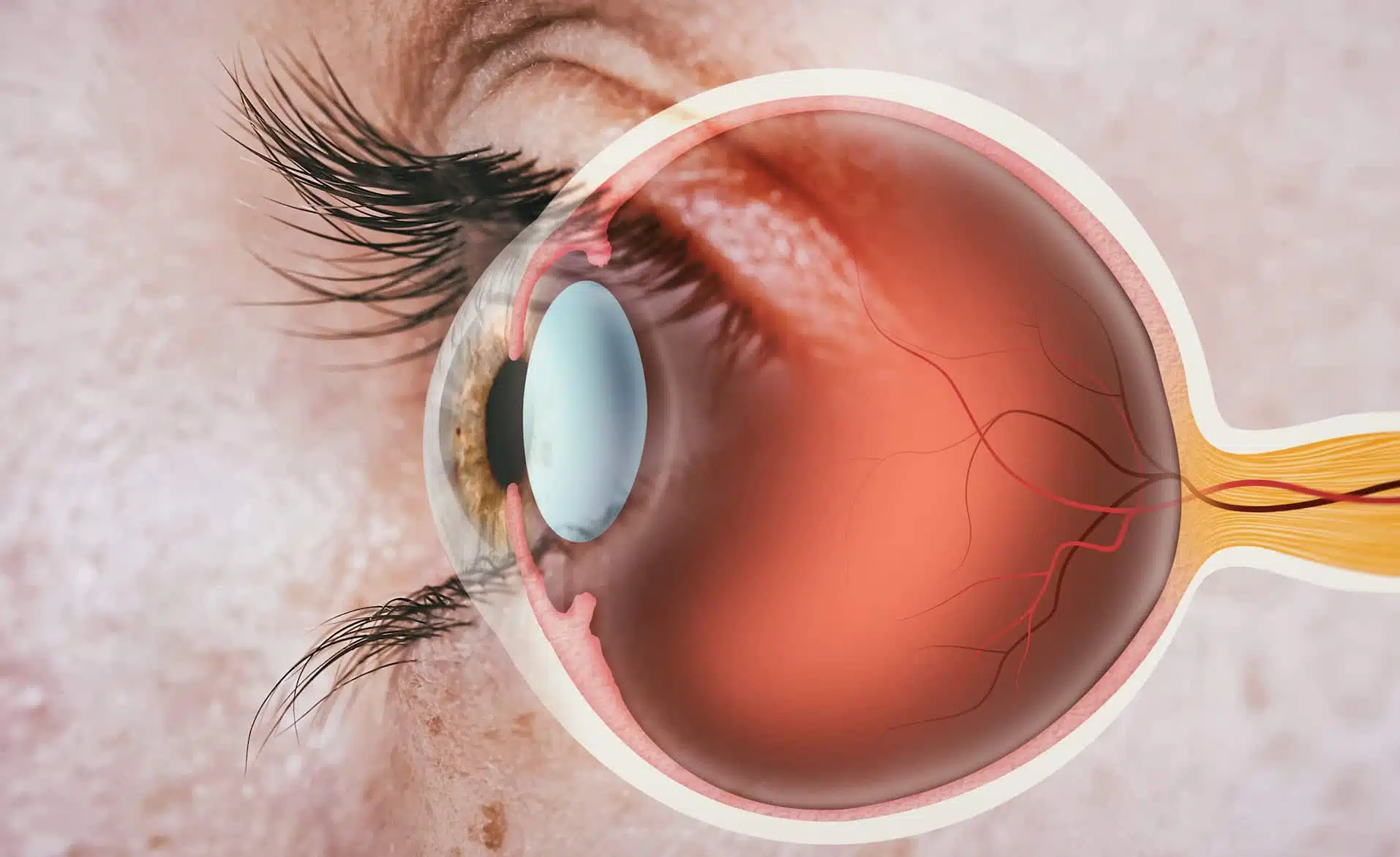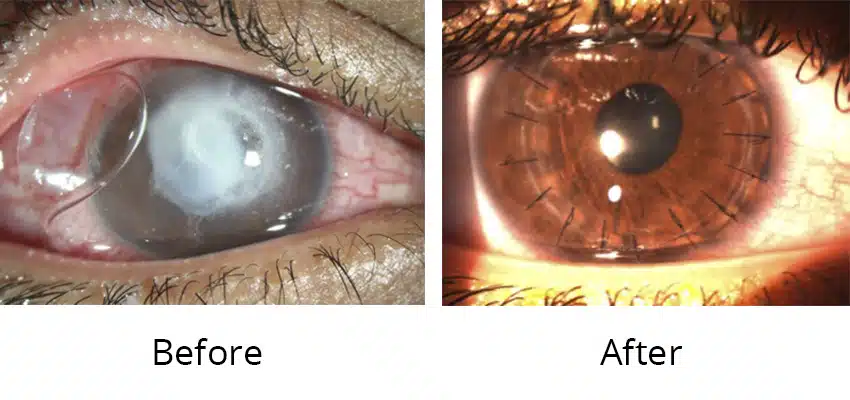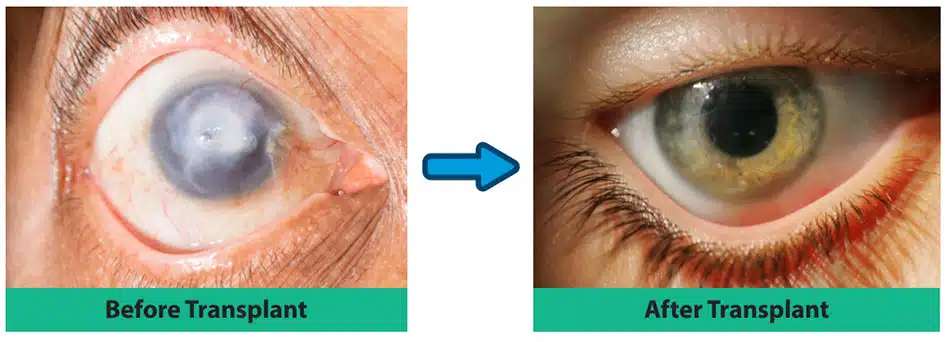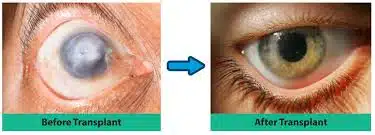Table of Contents

The Ultimate Guide to Cornea Transplant in Turkey: What You Need to Know About Cost, Safety & Results
Vision is one of our most precious senses, and when it begins to fail due to corneal damage or disease, it can deeply affect every part of daily life — from reading and driving to simply enjoying the world around us. Fortunately, medical advancements in cornea transplant in Turkey have made it possible to restore sight with remarkable success rates. As the demand for high-quality yet affordable eye care rises, more and more patients are looking beyond their home countries for treatment. One destination, in particular, has gained global recognition for its excellence in ophthalmology: Turkey.
In this comprehensive guide, we’ll explore everything you need to know about getting a cornea transplant in Turkey—from the different types of procedures and their benefits to risks, recovery, and cost comparisons. Whether you’re actively considering surgery or simply exploring your options, this article will equip you with the knowledge you need to make an informed decision with confidence.
Time in Turkey
7 to 14 days
Surgery Time
2 to 5 hours
Hospital Stay
1 to 3 days
Recovery
2 to 6 weeks
Accomodation
4/5* Hotels
Transportation
Private Driver
What is Cornea Transplant in Turkey?
A cornea transplant, also known as keratoplasty, is a surgical procedure that replaces part or all of a damaged or diseased cornea with healthy donor tissue. The cornea is the clear, dome-shaped surface that covers the front of the eye, and it plays a vital role in focusing vision. When it becomes clouded, scarred, or misshapen due to disease, trauma, or infection, a transplant may be necessary to restore clear vision.
People suffering from conditions like keratoconus, Fuchs’ dystrophy, corneal scarring, or thinning may benefit greatly from this surgery. It is one of the most successful transplant procedures in modern medicine with a high success rate and minimal risk when performed correctly.
Types of Cornea Transplant
In Turkey, there are several types of cornea transplant procedures, with the choice depending on the extent of corneal damage. For severe damage, a full-thickness transplant (penetrating keratoplasty) may be necessary, while partial-thickness transplants like DALK or DSAEK are used for conditions affecting specific corneal layers. Turkey’s advanced medical technology and skilled surgeons ensure that each patient receives the most suitable procedure:
1. Penetrating Keratoplasty (PK)
- Full-thickness transplant
- Used when all layers of the cornea are damaged
- Longest recovery time
2. Deep Anterior Lamellar Keratoplasty (DALK)
- Replaces outer and middle corneal layers
- Preserves endothelium (inner layer)
- Lower risk of rejection
3. Descemet Stripping Automated Endothelial Keratoplasty (DSAEK)
- Replaces the inner layer of the cornea
- Faster recovery and better vision improvement than PK
4. Descemet Membrane Endothelial Keratoplasty (DMEK)
- Most advanced technique
- Replaces only the thinnest layer
- Fastest recovery and highest clarity
How is the Cornea Transplant Procedure Done?
A cornea transplant—also called keratoplasty—is a delicate but highly effective eye surgery that replaces a damaged or diseased cornea with healthy donor tissue. The entire process is performed under strict medical protocols and usually takes about 60 to 90 minutes. Let’s walk through the full procedure, step by step:
1. Pre-Operative Assessment
Before surgery, you’ll undergo a comprehensive eye examination that includes:
■ Vision tests (visual acuity and refraction)
■ Corneal topography or scans
■ Measurement of eye pressure
■ Screening for infections or underlying conditions
This step helps determine the type of transplant you need (full-thickness or partial) and ensures you’re a safe candidate for the operation.
2. Donor Cornea Preparation
The clinic sources donor corneas from licensed and certified eye banks. All donor tissue is rigorously tested to meet international safety standards.
Depending on the method selected, the cornea is prepared differently:
■ PK (Penetrating Keratoplasty): Full-thickness corneal graft
■ DSEK/DSAEK or DMEK: Only thin layers of corneal tissue are prepared
3. Anesthesia and Surgical Setup
The procedure is typically done under local anesthesia with sedation, although general anesthesia may be used for more complex cases or anxious patients.
■ You’ll be comfortably positioned
■ Your eye will be numbed and prepped with sterile coverings
4. Removal of Damaged Cornea
Using a surgical microscope, the ophthalmologist carefully removes the damaged portion of your cornea:
■ In PK, a circular portion of the entire cornea is removed
■ In lamellar techniques (DSEK, DMEK), only the inner or outer layers are removed
■ Precision tools like a trephine (circular cutting instrument) are used to make perfect graft openings
5. Placement and Stitching of Donor Tissue
The donor cornea is then placed in the exact position and secured:
■ PK: Stitched with ultra-fine sutures (may remain in place for months or even over a year)
■ DSEK/DMEK: Uses a tiny air bubble or fluid to help the thin donor tissue adhere to your natural cornea
These modern methods reduce recovery time and risk of complications.
6. Post-Operative Monitoring and Medication
After the surgery:
■ You’ll be moved to a recovery room and monitored for a few hours
■ Eye drops with antibiotics and steroids will be prescribed to prevent infection and inflammation
■ Most patients go home the same day or the following morning
■ Your vision may be blurry at first, but it gradually improves as your eye heals
Why is Turkey a Popular Destination for Cornea Transplant?
Turkey is a popular destination for cornea transplants due to its high-quality care, experienced surgeons, and affordable prices. The country offers state-of-the-art clinics, advanced technology, and skilled surgeons, all while providing lower costs compared to many Western countries. This combination makes Turkey an attractive choice for medical tourists seeking effective and budget-friendly treatments:
- 1. Affordable Cost: Much cheaper than in the US or UK without sacrificing quality.
- 2. Highly Trained Surgeons: Many studied or practiced in Europe or the US.
- 3. Top-Tier Facilities: Equipped with the latest technology and tools.
- 4. No Waiting Lists: Faster access to surgery.
All-Inclusive Packages: Often include transport, lodging, and translators.
After & Befor Cornea Transplant in Turkey




Cornea Transplant Cost in Turkey vs. Other Countries
The cost of a cornea transplant varies widely depending on the country. With advanced medical facilities and highly skilled surgeons, Turkey has become a popular destination for affordable eye care. This article compares the costs of cornea transplant procedures in Turkey, the United States, the United Kingdom, Germany, and India, helping patients make informed decisions about their treatment options:
Country | Average Cost (USD) | Inclusions |
Turkey | $3,000 – $5,000 | Surgery, meds, hotel, transport |
USA | $13,000 – $20,000 | Surgery only |
UK | $9,000 – $14,000 | Surgery only |
Germany | $8,000 – $12,000 | Surgery + initial care |
India | $2,500 – $4,500 | Surgery + meds |
Source: International Medical Travel Journal
Turkey offers incredible value for money with world-class care at a fraction of the cost.
Choosing the Right Clinic and Surgeon
Selecting the right medical professional and facility is key to a successful outcome when undergoing any medical procedure, including a cornea transplant. Ensuring that you are in the hands of experienced professionals and in a well-equipped facility can significantly impact the success of the surgery and the quality of your recovery. When choosing a surgeon and clinic for a cornea transplant, it’s important to look for the following:
- 1. Board-certified ophthalmologists
- 2. Clinics with JCI or international accreditation
- 3. Positive patient testimonials and case studies
- 4. Transparent pricing and detailed pre-surgery consultations
What to Look for in a Cornea Transplant Clinic
Choosing the right clinic for your cornea transplant in Turkey can make all the difference in the success of your surgery and the quality of your recovery. Not all clinics are created equal, so it’s essential to evaluate several key factors before making a decision. Here’s what to look for:
Reputation and Reviews
Start by researching the clinic’s reputation within the medical tourism and ophthalmology communities. Patient reviews and testimonials can provide firsthand insight into others’ experiences with the clinic.
- 1. Look for high ratings on trusted platforms like Google Reviews, RealSelf, and medical tourism forums.
- 2. Ask for patient references or before-and-after case studies.
- 3. Search for any awards or recognitions in the field of eye care.
A clinic with a strong reputation and positive feedback is more likely to offer consistent and quality care.
Surgeon’s Qualifications and Experience
The surgeon is the most important factor in the success of your procedure. Ensure the ophthalmologist:
- 1. Has specific experience in cornea transplant surgery, not just general eye surgeries.
- 2. Is board-certified and ideally trained in international institutions.
- 3. Has performed a high number of similar procedures with documented outcomes.
- 4. Is affiliated with professional organizations like the Turkish Ophthalmological Society or European Society of Cataract and Refractive Surgeons (ESCRS).
Don’t hesitate to request credentials, training background, and experience with the specific technique you’ll be undergoing (PK, DMEK, etc.).
Technology and Equipment Used
Modern surgical tools and diagnostic imaging play a vital role in the precision and outcome of your surgery. Make sure the clinic is equipped with:
- 1. High-resolution corneal topography scanners
- 2. Femtosecond lasers (for advanced, minimally invasive procedures)
- 3. Clean and sterile operating rooms meeting international standards
- 4. Donor tissue storage systems that comply with eye bank regulations
Advanced technology not only enhances surgical precision but also reduces the risk of complications and improves recovery time.
Accreditation and Certification
Choose a clinic that has the necessary accreditations and operates under recognized health standards:
- 1. Look for JCI (Joint Commission International) or Turkish Ministry of Health certification.
- 2. Check if the clinic is part of international medical tourism associations.
- 3. Ask if the facility complies with WHO surgical safety guidelines.
Accreditation is a strong signal that the clinic meets strict criteria for hygiene, patient care, and clinical excellence.
Pre-Surgery Consultation and Eye Examination
A reputable clinic will never rush you into surgery. Instead, they should offer a thorough pre-operative consultation that includes:
- 1. A detailed eye examination and corneal imaging
- 2. A comprehensive discussion about your medical history
- 3. Clear explanation of surgical options and recommendations
- 4. Time for you to ask questions and evaluate your comfort level
This step ensures that the surgery is truly the right solution for your condition and that you’re fully informed before making a decision.
Post-Surgery Care and Follow-Ups
Post-operative care is just as critical as the procedure itself. A trustworthy clinic should provide:
- 1. A detailed aftercare plan with medications and instructions
- 2. Multiple follow-up appointments to monitor healing and address concerns
- 3. Remote support or contact in case of emergencies once you return home
- 4. Availability of additional corrective procedures if needed
Good clinics often assign a coordinator or assistant to help manage your recovery process and ensure that all your questions are answered.
Pricing and Transparency
While affordability is one of the top reasons to get a cornea transplant in Turkey, it’s essential that the clinic is clear and upfront about costs. Look for:
- 1. A full breakdown of the price (including surgery, consultation, donor tissue, medications, and follow-ups)
- 2. No hidden fees or surprise charges
- 3. Package options that include accommodation, airport transfers, and translators (if needed)
- 4. Clear refund, cancellation, and rescheduling policies
Transparency in pricing helps you avoid unexpected expenses and gives you peace of mind as you plan your medical journey.
Questions to Ask Your Surgeon Before the Procedure
Before undergoing a cornea transplant in Turkey, it’s crucial to have a transparent and informative conversation with your surgeon. Asking the right questions helps you understand the procedure, manage your expectations, and feel confident in your decision. Here are key topics and sample questions you should bring up during your consultation:
About the Surgeon’s Experience
The success of your surgery heavily depends on the surgeon’s skill and background. Be sure to ask:
- 1. How many cornea transplant surgeries have you performed?
- 2. What types of transplants (PK, DALK, DMEK, DSAEK) are you most experienced with?
- 3. Where did you receive your training and certifications?
- 4. Do you specialize in corneal diseases or general ophthalmology?
- Can you share before-and-after cases or patient testimonials?
These questions help ensure that your surgeon has the hands-on experience and specialized expertise necessary for a safe and successful procedure.
About the Procedure
Understanding how the surgery will be performed prepares you mentally and physically. Ask your surgeon:
- 1. Which type of cornea transplant do you recommend for my case, and why?
- 2. How long will the surgery take?
- 3. Will I be under local or general anesthesia?
- 4. What technology or equipment will be used?
- Is the donor cornea fresh or from a certified eye bank?
This information will give you a clear idea of what to expect on the day of surgery and why a particular surgical method is best suited to your condition.
About Risks and Expectations
It’s important to be fully aware of potential complications and realistic about results. Clarify by asking:
- 1. What are the risks specific to my condition?
- 2. What’s the likelihood of graft rejection or complications?
- 3. What symptoms should I watch for after surgery?
- 4. How long before I notice improvement in vision?
- 5. Will I still need glasses or contacts after the procedure?
These questions help align your expectations with reality, and prepare you to act quickly if complications arise.
About Post-Surgery Care
Aftercare is just as important as the surgery itself. Make sure you understand the post-op protocol by asking:
- 1. How long is the recovery period?
- 2. What medications or eye drops will I need?
- 3. How often should I return for follow-ups?
- 4. When can I resume work, exercise, or travel?
- 5. Will you be available for support after I return to my home country?
Getting clarity on aftercare helps you plan your schedule and travel, and ensures you’re fully supported during the healing process.
About Pricing and Insurance
Even though cornea transplant cost in Turkey is more affordable than in many other countries, you still need to understand the full financial picture. Ask:
- 1. What’s included in the total package price?
- 2. Are the donor cornea, medications, and follow-up appointments included?
- 3. Are there any hidden fees I should be aware of?
- 4. Do you accept international insurance or offer payment plans?
- What is your cancellation or rescheduling policy?
This ensures financial transparency and helps you compare clinics fairly while planning your medical travel budget.
How to Book Your Cornea Transplant Surgery in Turkey
Booking a cornea transplant in Turkey is easier than you might think. With well-organized medical tourism services, most clinics guide you through every step of the process. Here’s a step-by-step guide to help you book your surgery with confidence:
Step 1: Research & Select a Trusted Clinic
Start by researching top-rated eye clinics in Turkey, especially in cities like Istanbul, Ankara, Antalya, or Izmir. Look for clinics that:
■ Specialize in corneal surgeries
■ Have JCI accreditation or similar certifications
■ Feature experienced ophthalmologists
■ Offer all-inclusive international patient packages
■ Have positive reviews on platforms like Trustpilot or Google
You can also request before-and-after photos or patient testimonials to evaluate results.
Step 2: Request a Free Online Consultation
Most clinics provide a free online consultation with an eye surgeon or a medical advisor. During this consultation:
■ You’ll be asked to submit your medical history, current eye condition, and any existing prescriptions or test results
■ The specialist will evaluate your case and recommend the most suitable type of corneal transplant (PK, DMEK, DSAEK, etc.)
This helps determine if you’re a good candidate and allows for personalized treatment planning.
Step 3: Receive Your Treatment Plan & Quote
After reviewing your medical data, the clinic will send:
■ A detailed treatment plan
■ An all-inclusive quote (usually includes surgery, hotel, medications, transfers, etc.)
■ Optional upgrades or services (VIP transport, 5-star hotel, longer stay)
Compare a few offers before making your final choice.
Step 4: Confirm Your Booking & Travel Details
Once you’re satisfied with the treatment plan:
■ Confirm your surgery date
■ Pay a deposit if required (some clinics allow full payment on arrival)
■ Share your passport details for visa and travel assistance
Clinics typically offer help with:
■ Visa applications
■ Hotel reservations
■ Flight booking suggestions
Step 5: Arrive in Turkey & Begin Your Treatment Journey
You’ll be picked up from the airport by the clinic’s international patient team. Your treatment process will include:
■ In-person consultation & final check-up
■ Surgery day
■ Post-operative follow-ups over the next 5–7 days
■ Assistance with recovery, medication, and instructions for care back home
Benefits of Cornea Transplant
A cornea transplant in Turkey offers a transformative solution for individuals suffering from corneal disease or injury, and its benefits can be both immediate and long-lasting. Whether you’re struggling with blurry vision, chronic eye discomfort, or the inability to perform daily activities, this procedure can dramatically improve your quality of life. Below are the key benefits explained in detail:
1. Restoration of Clear Vision
The primary goal of cornea transplant surgery is to restore sharp, clear vision. For patients whose corneas have become scarred, swollen, or misshapen due to conditions like keratoconus, trauma, or infection, replacing the damaged tissue with a healthy donor cornea can significantly improve eyesight. In many cases, patients go from being legally blind to being able to read, drive, and return to normal activities within months.
2. Pain Relief and Comfort
Diseased or damaged corneas can cause constant eye pain, irritation, or a gritty sensation that doesn’t respond well to medication or conservative treatment. A cornea transplant removes the affected tissue, providing much-needed relief. Many patients report a major reduction in eye discomfort and inflammation within just a few weeks of surgery.
3. Better Light Sensitivity Management
People with corneal problems often experience light sensitivity or glare, which can interfere with daily tasks. After a successful transplant, the new cornea allows light to enter the eye more evenly and accurately, improving overall visual comfort and reducing glare.
4. Improved Appearance of the Eye
In addition to functional benefits, a transplant can enhance the cosmetic appearance of the eye. A damaged or cloudy cornea can look visibly different, and a healthy transplant restores the eye’s natural clarity and symmetry.
5. Long-Term Results
Thanks to modern surgical techniques and high-quality donor tissue, the results of a cornea transplant can last for many years, sometimes decades. With regular follow-ups and proper care, many patients enjoy long-term visual stability and improved quality of life.
6. High Success Rate
Cornea transplants are among the most successful types of organ transplants. According to global studies, over 90% of full-thickness transplants and 95% of partial-thickness transplants are successful, especially when performed by experienced surgeons. The risk of rejection is relatively low compared to other types of transplants.
7. Enhanced Emotional Wellbeing
For many patients, the ability to see clearly again isn’t just a physical improvement—it has a major emotional and psychological impact. Restoring vision can lead to increased independence, self-confidence, and peace of mind, helping individuals return to work, engage in hobbies, and reconnect with loved ones.
Risks and Potential Side Effects
While cornea transplant in Turkey is generally safe and highly successful, like any medical procedure, it comes with a few risks and potential side effects that patients should be aware of. Understanding these risks allows you to make informed decisions and take the necessary steps to reduce complications during recovery.
1. Graft Rejection
One of the most serious risks is rejection of the donor cornea, which happens when your immune system identifies the transplanted tissue as foreign and attacks it. Signs of rejection include:
- 1. Redness of the eye
- 2. ncreased light sensitivity
- 3. Blurred vision
- 4. Pain or discomfort
Rejection occurs in about 10–20% of cases but is often treatable if caught early. Using prescribed anti-rejection eye drops and attending follow-ups significantly lowers this risk.
2. Infection
As with any surgery, there’s a risk of post-operative infection. The eye is especially vulnerable in the first few weeks after surgery. Symptoms may include redness, swelling, pain, and discharge. Proper hygiene, regular use of antibiotic drops, and avoiding contact with dirty hands or water sources (like pools) are essential.
3. Increased Intraocular Pressure (Glaucoma)
Some patients may develop glaucoma, a condition where pressure inside the eye increases, potentially damaging the optic nerve. This can result from post-surgical inflammation or the long-term use of steroid eye drops. Monitoring eye pressure during follow-up appointments helps catch and treat this early.
4. Astigmatism or Blurred Vision
Cornea transplants can sometimes lead to irregular corneal shape, causing blurred or distorted vision. This is known as astigmatism and is typically managed with prescription glasses, contact lenses, or, in some cases, laser correction.
5. Detached Retina or Cataracts
Although rare, serious complications like retinal detachment or cataract formation may occur following surgery. These conditions are more likely in older patients or those with pre-existing eye diseases. Timely diagnosis and additional treatment can address these issues effectively.
6. Failure of the Graft
In some instances, the transplanted cornea may fail to function properly due to poor healing or undetected tissue problems. If this happens, a second transplant may be required. While rare, this possibility should be discussed with your surgeon ahead of time.
7. Prolonged Healing Time
Healing from a cornea transplant can take several months to a full year, depending on the type of surgery and individual healing rates. Some patients may feel frustrated by the slow visual improvement, but patience and consistent care usually lead to excellent outcomes.
How to Reduce Your Risk
- 1. Follow all post-op instructions carefully
- 2. Use all prescribed medications on schedule
- 3. Avoid rubbing or touching your eye
- 4. Attend every follow-up appointment
- 5. Contact your doctor immediately if symptoms worsen
While the risks are real, they are well understood and manageable, especially when surgery is performed by skilled specialists in a reputable clinic. In Turkey, many ophthalmology centers use cutting-edge tools and strict protocols to minimize complications and ensure patient safety.
Is Cornea Transplant Safe?
Yes, a cornea transplant in Turkey is widely considered to be one of the safest and most successful transplant surgeries available today. Thanks to advancements in microsurgical techniques, improved donor tissue screening, and enhanced post-operative care, the procedure has a high success rate and relatively low risk of complications.
Globally, the success rate for cornea transplants ranges between 85% and 95%, depending on the type of surgery and the patient’s condition. Partial-thickness procedures like DMEK and DALK have even lower rejection rates and faster recovery times compared to traditional full-thickness (PK) transplants.
Factors That Influence Safety
The safety and success of your surgery depend on several factors:
- 1. Your overall health and eye condition
- 2. Type of corneal damage and chosen surgical method
- 3. Skill and experience of the surgeon
- 4. Adherence to post-operative care instructions
By selecting a reputable clinic and following your doctor’s advice closely, you can significantly increase the likelihood of a smooth surgery and full recovery.
Pre-Surgery Preparations
Before undergoing a cornea transplant in Turkey, several steps ensure you’re ready:
- 1. Comprehensive Eye Exam: Doctors assess the severity and type of corneal damage.
- 2. Health Checkup: To rule out conditions that may affect surgery or healing.
- 3. Medical History Review: Including medications and allergies.
- 4. Informed Consent: Patients are educated about risks, benefits, and aftercare.
- Mental Preparation: Understanding the timeline, recovery process, and outcome expectations helps reduce anxiety.
What to Expect on the Day of Surgery
On surgery day, here’s what typically happens:
- 1. Arrival at Clinic: Patients are admitted and prepped.
- 2. Anesthesia: Most surgeries use local anesthesia with sedation.
- 3. Surgery Duration: The procedure usually takes 30–90 minutes depending on the type.
- 4. Aftercare: Patients rest for a few hours before being released, often the same day.
- 5. Eye Shield: Worn to protect the eye for the first few days.
Post-Surgery Recovery and Care
Recovery is crucial for success. Here’s what you can expect:
- 1. Initial Recovery: Most patients notice vision improvement within a few weeks.
- 2. Medications: Antibiotic and steroid eye drops are prescribed to prevent infection and reduce inflammation.
- 3. Activity Restrictions: Avoid strenuous activity, swimming, and rubbing the eye.
- 4. Follow-up Visits: Regular check-ins ensure the graft is healing properly.
- 5. Vision Correction: Glasses or contacts may still be needed.
Full recovery may take several months, depending on the procedure and your health.
How Long Do the Results Last?
The results of a cornea transplant in Turkey can last many years — even decades — especially with proper care. While full-thickness grafts may eventually degrade, partial transplants like DMEK have shown impressive long-term results. Regular eye exams, good hygiene, and prompt attention to symptoms can extend graft life.
Cornea Transplant FAQs
Is a cornea transplant painful?
No, the procedure is performed under anesthesia. Post-op discomfort is mild and manageable with prescribed medication.
How soon can I return to work after the surgery?
Most people return to light work within 1–2 weeks, but full recovery may take a few months.
Can both eyes be treated?
Yes. All donor tissue is rigorously screened and tested to ensure safety and quality.
Is donor tissue safe?
Many patients notice improved vision within a few days, but full recovery and stabilization may take 4 to 6 weeks.
Will I need glasses after surgery?
Some patients may still need glasses or contacts, especially if they have other refractive errors.
How do I choose the best clinic in Turkey?
Look for international accreditation, qualified surgeons, transparent pricing, and solid patient reviews.
How long do I need to stay in Turkey after my cornea transplant?
Most clinics recommend staying in Turkey for 7 to 10 days after the surgery to attend follow-up appointments and ensure proper initial healing. This also allows your surgeon to monitor for early signs of complications or rejection.
Is it safe to travel by plane after surgery?
Generally, you can fly 7 to 10 days after surgery, but always follow your surgeon’s specific advice. You may need to avoid cabin pressure-related stress on the eyes, especially in the first few days.
Are there any age restrictions for cornea transplant surgery?
There are no strict age limits. Both younger and older patients can be eligible, as long as they are in overall good health and meet the medical criteria for surgery.




